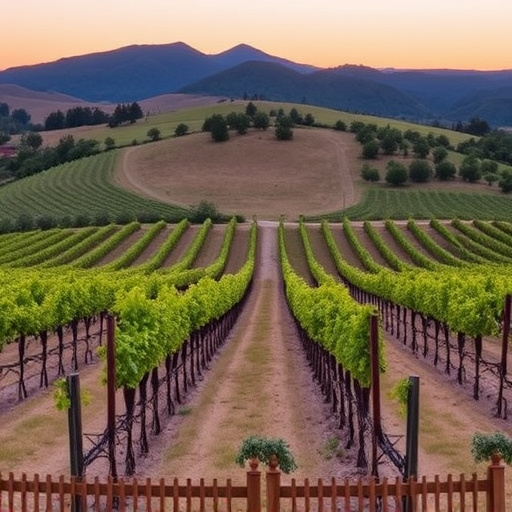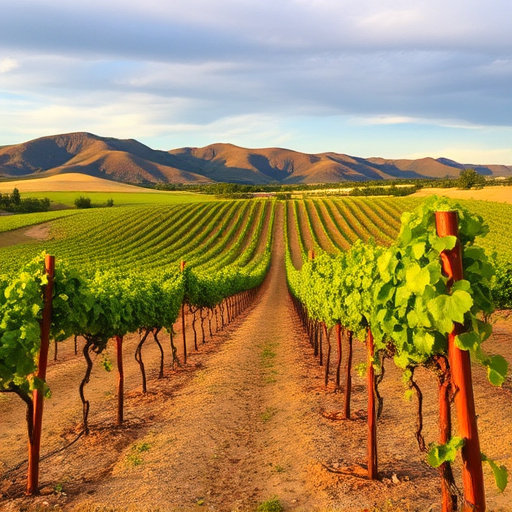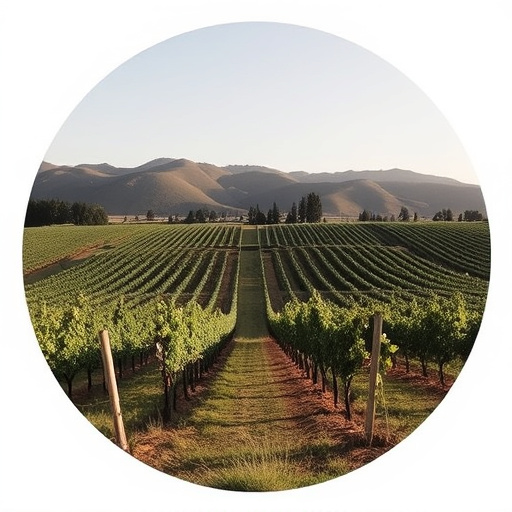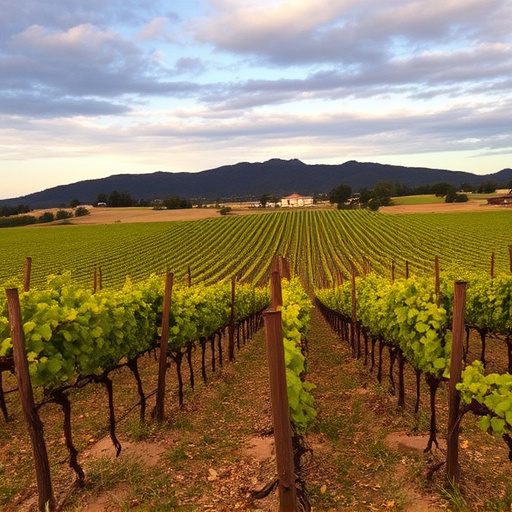Sonoita vineyards in Arizona's Sonoran Desert pioneer eco-friendly wine production through dry farming techniques, minimizing water use and enhancing grape quality. This sustainable approach, driven by environmental awareness, attracts global wine lovers seeking both exceptional wines and ecological preservation.
“Discover the captivating world of eco-conscious winemaking in the Sonoita region, where dry farming practices have revolutionized the industry. Uncover the unique techniques that set this area apart, from its traditional dry farming methods to the rise of biodynamic and organic wine production. Explore how local winemakers are leading a sustainable revolution, embracing challenges to deliver exceptional wines while preserving the delicate balance of their terroir. Dive into this journey through Sonoita’s vibrant vineyards.”
- Unveiling Sonoita's Unique Dry Farming Practices
- The Rise of Eco-Conscious Vineyards in Sonoita
- Understanding the Challenges and Benefits of Dry Farming
- Local Winemakers Leading Sustainable Revolution
- Exploring Sonoita's Biodynamic and Organic Wine Production
Unveiling Sonoita's Unique Dry Farming Practices
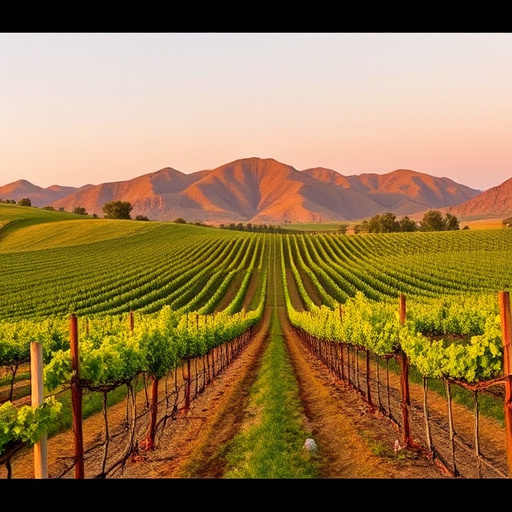
The Sonoita region, nestled in Arizona’s Sonoran Desert, has emerged as a beacon for eco-conscious wine production. Here, vineyards embrace dry farming—a unique and sustainable approach that shuns irrigation, relying instead on the area’s natural desert rainfall patterns. This method not only preserves the vineyard’s terroir but also conserves precious water resources, making it an appealing strategy in arid regions worldwide.
Dry farming in Sonoita involves careful land management, including strategic planting, soil conservation techniques, and precise timing for grapevines’ water needs. Local winemakers are pioneers in this practice, sharing their expertise and fostering a thriving ecosystem that supports both agriculture and environmental preservation. As a result, Sonoita vineyards not only produce exceptional wines but also serve as models for sustainable viticulture, attracting wine enthusiasts and eco-conscious consumers alike.
The Rise of Eco-Conscious Vineyards in Sonoita
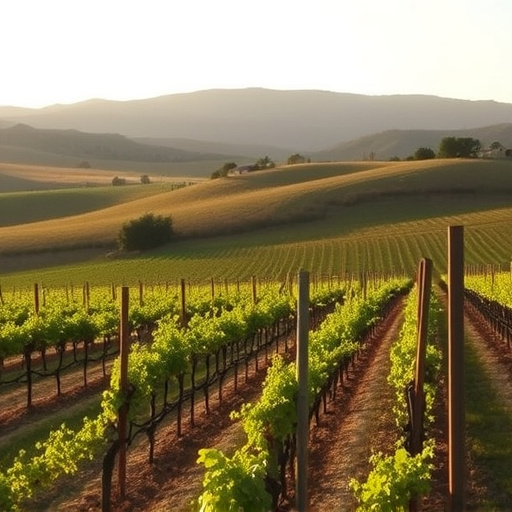
In recent years, there’s been a notable trend among Sonoita vineyards embracing eco-conscious practices, leading to a more sustainable and harmonious wine-growing region. This shift is driven by a growing awareness of environmental impact and a desire to preserve the unique terroir of the area. Vineyard managers are ditching conventional methods for more natural approaches, particularly dry farming, which minimizes water usage and promotes healthier soil.
By adopting these eco-friendly tactics, Sonoita vineyards not only reduce their carbon footprint but also enhance the quality of their grapes. Dry farming, for instance, encourages deep root systems that make vines resilient to droughts and promote a more complex flavor profile in the resulting wines. This movement towards sustainability is not just a trend; it’s a commitment to preserving the region’s rich agricultural heritage while ensuring its longevity for future generations.
Understanding the Challenges and Benefits of Dry Farming
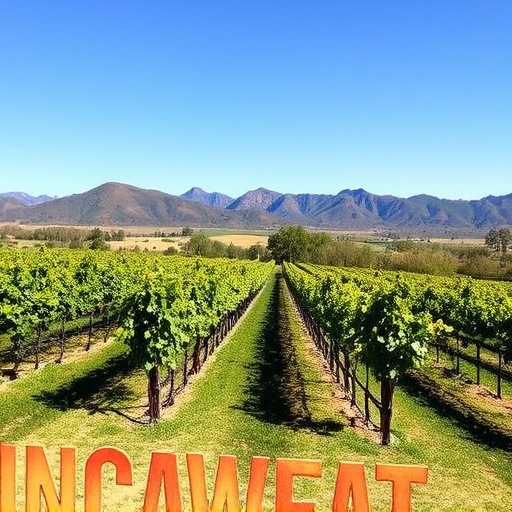
Dry farming, a traditional yet challenging practice, is gaining prominence in the Sonoita region as vineyards embrace eco-consciousness. Unlike irrigation, which has been the norm, dry farming relies on rainfall and minimal water usage to cultivate grapes. This method presents several challenges, such as increased vulnerability to weather conditions and the need for precise timing of activities like pruning and harvesting. However, the benefits are significant, both for the environment and wine quality.
Sonoita vineyards that adopt this approach experience improved soil health due to reduced erosion and nutrient retention. The absence of artificial water input also results in wines with distinct character and higher mineral content. Moreover, dry farming contributes to water conservation, a pressing issue in arid regions like Sonoita, ensuring sustainability for future generations while offering a unique wine-growing experience that resonates with consumers increasingly conscious of environmental impact.
Local Winemakers Leading Sustainable Revolution
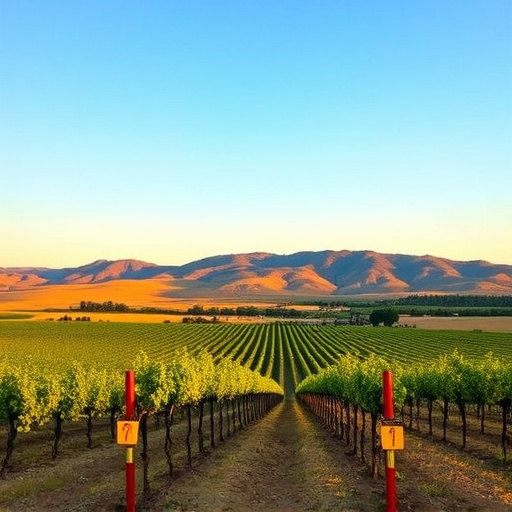
In the scenic Sonoita region, local winemakers are at the forefront of a sustainable revolution within the wine industry. These pioneering producers embrace eco-conscious practices, with dry farming being a prominent strategy to reduce water usage and promote healthier grapevines. By forgoing irrigation, they rely on the area’s natural rainfall patterns, fostering a unique connection between the land and the vines.
This approach not only conserves water but also enhances the overall quality of their wines. Sonoita vineyards thrive in this arid climate, where the grapes develop intense flavors and distinctive character. The winemakers’ dedication to sustainability sets an inspiring example for the industry, proving that exceptional wine can be crafted while preserving the environment for future generations.
Exploring Sonoita's Biodynamic and Organic Wine Production
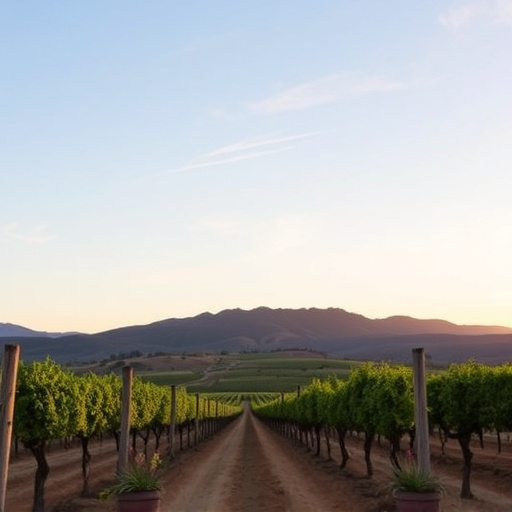
The Sonoita region, known for its stunning landscapes and diverse ecosystems, has emerged as a pioneer in eco-conscious wine production. Here, vineyards embrace biodynamic and organic farming practices, reflecting a deep respect for nature’s delicate balance. These methods go beyond simple sustainability; they are a holistic approach to viticulture. By fostering a vibrant soil ecosystem, using natural composting techniques, and minimizing external interventions, Sonoita’s winemakers create wines that are not only sustainable but also exceptionally flavorful.
Biodynamic agriculture emphasizes the interconnectedness of all living things, aiming to nurture the health of the entire vineyard ecosystem. Organic practices, similarly, prioritize non-toxic pest management and soil conservation. As a result, sonoita vineyards produce wines that are pure, authentic, and truly reflective of their unique terroir. This commitment to environmental stewardship not only preserves the beauty of the region but also ensures the long-term viability of wine production in harmony with nature.
The Sonoita region has emerged as a beacon for eco-conscious vineyards, showcasing innovative dry farming practices that not only preserve the land’s natural beauty but also produce exceptional wines. By embracing biodynamic and organic methods, local winemakers are leading a sustainable revolution, ensuring the future of both their art and the environment. These pioneers continue to captivate both industry experts and wine enthusiasts with their commitment to preserving the unique character of Sonoita vineyards for generations to come.
